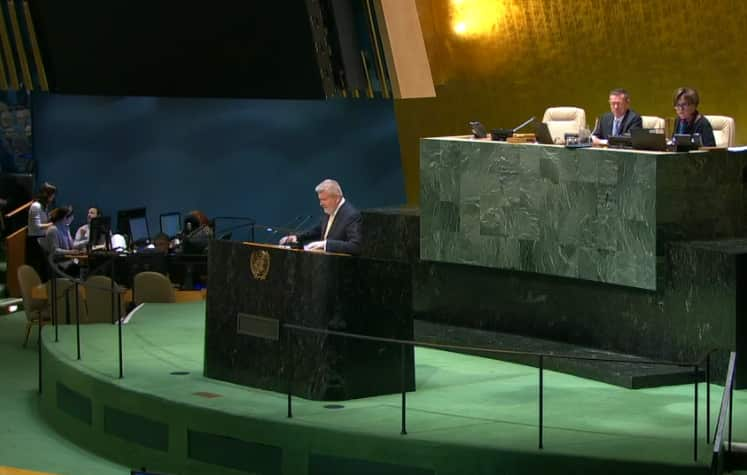Australia has warned reform of the United Nation's Security Council is moving at a “glacial pace” and change is "well overdue" to reflect the geopolitical realities of our time.
Australia’s new ambassador to the UN, Mitch Fifield told the UN General Assembly the international rules-based order upholding stability and security is under “significant strain”.
He said Asia, Africa and Latin America deserve "greater representation" on the Security Council, which must evolve to more "effectively" respond to the challenges of the 21st century.

“We regret that progress on reform of the council has been incremental to date – it has moved at a glacial pace if it has moved at all,” he said.
“Our world is increasingly complex and contested and we can do better to meet contemporary present challenges to peace and security,” he said.
His speech came on Monday as the UN General Assembly debated the representation and the case for increasing membership on the Security Council.
Mr Fifield said a focus for Australia was ensuring the growing geopolitical importance of Asia, Africa, and Latin America was recognised.
“Now more than ever we must urgently find ways to ensure the Council can act as it must to address the challenges of today and maintain international peace and security,” Mr Fifield said.
The Security Council is made up of five permanent members China, France, Russia, the United Kingdom, and the United States.
These states hold a veto power, which allows them to block any “substantive decisions” on the Security Council.
But the veto power has sometimes earned controversy for being used to defend national interests, uphold foreign policy positions or promote concerns of importance to particular states.
Mr Fifield said better standards needed to be developed over the measure: “so that its use is more transparent and limited.”
"Questions hang over whether the Council is set up in the best way to maximise its effectiveness - reform is well overdue," he said.
Alongside these permanent members, 10 nations are elected as non-permanent members on two-year terms by the General Assembly.
Australia has been a non-permanent member five times, with this position last coming in 2013-14.
But there are more than 60 United Nations member states that have never sat as members of the Security Council.
Mr Fifield said there is a “clear desire” among member states to move on from the status quo of the body's representation.
“[But] we are clear-eyed that comprehensive and meaningful reform will not come quickly,” he said.
The United Nations was founded as an international organisation in 1945 following the Second World War by 51 countries.
But the makeup of the five permanent members has not changed since its inception leading some advocates for reform to argue this reflects an outdated international landscape.
For example, there is not a single African nation represented as a permanent member, neither are rising populous nations India or Brazil.

